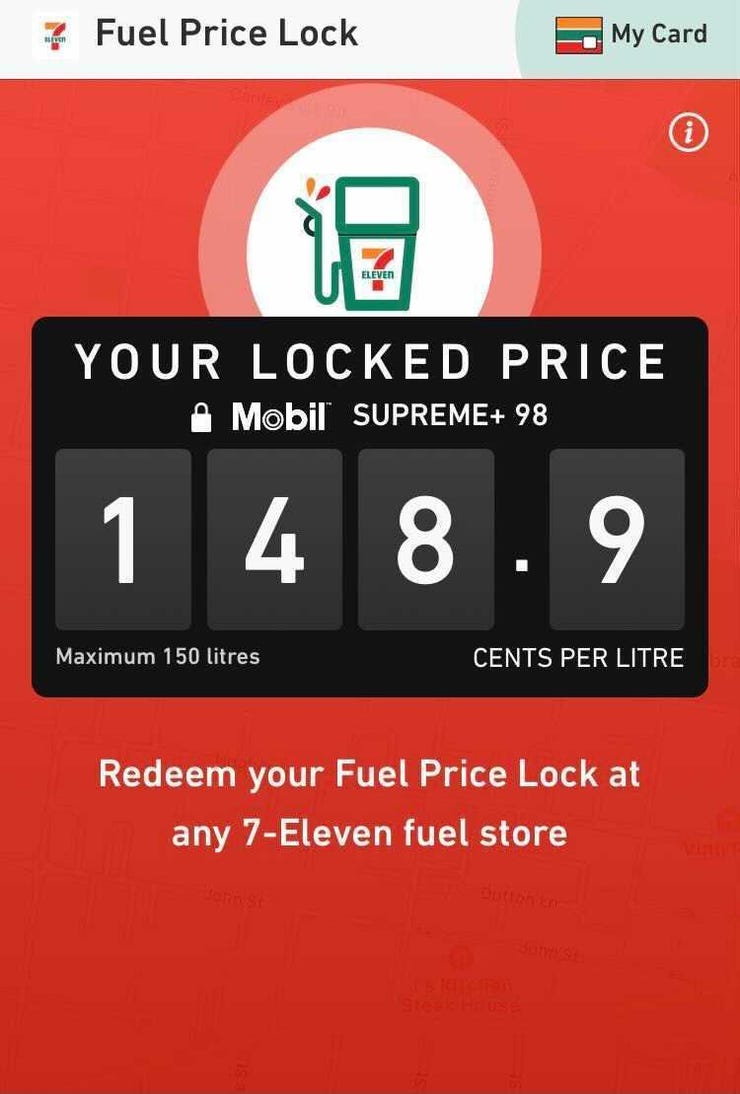7-Eleven Australia to expand cashier-less pilot mid-year


7-Eleven Australia has announced plans to launch a pilot mid-year that would allow customers to use their My 7-Eleven app to pay for items instead of at the counter at selected stores.
The plan is off the back of a trial 7-Eleven ran at its Richmond, Victoria store where it transformed the bricks and mortar outlet into a cashier-less store.
"Essentially there is no counter," 7-Eleven Australia head of digital innovation Paul Wallace explained, during the virtual Adobe Summit 2021. "You need to download one of our pilot apps and the mobile checkout app, and customers scan and pay for their products via their phone.
"This has really changed the operational model, so the interaction with customers; staff are on the floor and interacting with the customer versus being behind a counter and just transacting. That's allowed us to not only learn about the technology, but potentially how our store formats might change in the future as well."
Wallace explained part of the idea is to remove further friction in-store and speed up service.
"Our average customer [turnaround] used to be 60 seconds. I think now 90 seconds in-store because of coffee. It's really important for us to get them in and out as quickly as can and still deliver a really good experience," he said.
At the same time, the goal is to drive 28% of total transactions via its digital channel by 2030, Wallace said.
Read also: How tech helps with the spike of online retail (TechRepublic)
But digital was not always front of mind for the convenience store giant. It was only six years ago the company was prompted by "young guns" to start thinking about how technology could be used to improve the customer experience.
"I remember very distinctly everyone had an app. All retailers were rolling out multiple apps and we were just having the conversation. We had a website that pretty much did nothing. We didn't have an app and we felt like we were the last ones in the game," 7-Eleven strategy and technology general manager Stephen Eyears admitted.
The company's first foray into digital was when it introduced its 7-Eleven app to the market to enable customers to "lock in" the price of fuel.
"That was unique then and it's largely unique now, and still a very core part of our digital proposition," Eyears said.
"That entry into the market with our fuel was the first time that we actually really built some confidence that as a convenience player -- and a traditional bricks and mortar convenience player -- where customers were actually willing to engage with us."
Since that initial investment, the company has integrated Adobe Campaign to its systems. Wallace said making that investment meant the company has been able to introduce more personalised interactions with customers when they visit a store, such as through promotions and discounts.
"We could see that in the future digital was also going to allow us to reach customers outside of our store footprint," he said.
Wallace also revealed the company's "headless" commerce backend system is being underpinned by Magento.
"We're looking at it and slowly incrementally building out that kind of ecommerce capability through initiatives such as our mobile checkout initiative, and then looking at how do we leverage our campaign and analytics to deliver our personalised content, front-end experiences," he said.
Investing in data capabilities is also high on the agenda for 7-Eleven.
"We're right in the middle now of investing a lot in people and organisational to really harness the power of the data we're collecting so we can learn so much more about the customers that we have and the customers that we would like to have in the future," Eyears said.
Last October, 7-Eleven back paid more than AU$173 million to some 4,000 current and former employees who were underpaid in wages, interest, and superannuation between between September 2015 and February 2020.
To rectify the issue, 7-Eleven also entered into a three-year compliance partnership with the Fair Work Ombudsman to make substantial improvements to its payroll and time-recording systems. Specifically this included putting in place a biometric time recording system across all its Australian stores, requiring employees to clock in and out with a thumbprint, which is cross-checked against employee facial recognition images and store rosters to enable more accurate recording of working hours, and requiring all staff to be paid electronically only. Costs for the improved technology, systems, and processes was more than AU$10 million.
Related Coverage
Eftpos and BPAY merge to become New Payments Platform Australia
As part of efforts to improve local innovation and make the Australian payments landscape more competitive.
Woolworths reports strong start to FY21 as online sales and net profit experiences uplift
The digital arm of its Australian food business saw online sales jump 92% during the period.
Online sales and cost saving strategy sees Coles net profit jump 14% during 1H21
The company's supermarket online sales contributed AU$1 billion to overall sales revenue.
E-commerce retailers in Australia voluntarily pledge to improve product safety online
Amazon Australia, eBay Australia, Catch.com.au, and AliExpress have been named as the inaugural signatories.
Eftpos gears up to pilot QR code payments system in 2021
QR code is one of five technology focus areas for the debit card payments company over the next two years.